QuestionI was wondering what was safe to use for Ick in a freshwater tanks? In my aquarium I have two mollies, 6 x-ray bellies, 3 black neon tetras and 2 longnose whiptails.
currently, my male molly has a number of ick spots on his tailfin, and two of my black neon tetras have one or two spots of ick on their fins.
last week I had an ick issue (but it was my other molly and on some of my X-rays) I used salt/heat therapy where I did 1 tablespoon of salt per 5 gallons of water... (I did a water change while the salt was diluting in the replacement water, so I didn't add the salt directly to the tank. I thought it would be less stressful for them.)
that, combined with turning the heat up from 76 to 78.2, took care of the ick litterally overnight. I woke up the next morning and it was all good.
so I figured I'd leave it in a bit longer to make sure it killed the organizms as well before doing a water change to remove the salt.
I never got that far. Yesterday I noticed the spots on the fish I just mentioned. So I did a 5 gallon water removal, added 1 tbsp of salt (since it's 1 tbsp per every 5 gallons, and I removed 5 gallons) and this time I added a VERY low dose of Mardel coppersafe... (like a teaspoon and a half). I didn't want to do that cause I heard bad things about coppersafe, but I didn't have anything else at my disposal.
This morning my fish looked healthy, weren't stressed and were still swimming normally, but the ones I mentioned that had ick, still had ick. It isn't spreading to the fish I didn't see having ick, and it's not getting worse on the ones that do have it... but it's still there.
is there something else I can do if the salt is no longer working to treat it? Is there a medication for ick that's safer than Mardel coppersafe?
also, I read somewhere that if a fish has had an outbreak of ick, it's possible to build up an immunity, kind of like when we get sick, or get a vaccine, we're immune the next time around..like chicken pox... if you've had them you won't get them again?
is that true about ick and could that be why my other fish aren't getting it? (last time my other molly was the one with ick. This time she doesn't seem to be getting it.)
AnswerHi Andrea,
First you need to understand what ick is. It is a little organism with two stages to its life. In one stage, it is free-swimming. This stage is vulnerable to copper (which is the active ingredient in things like Rid-Ich). I highly recommend you use Rid-Ich or Quik-Cure. Salt alone
is not very effective. Once the parasite attaches to a fish it forms a cyst which appears as the little white dot on the fish. (BTW, it is highly unlikely that a fish will have one or two of these. If a fish has ick, it typically has dozens or hundreds of these. One or two dots is most likely not ick. A couple of dots could be anything.) The cysts are pretty much nuclear bomb proof and I known of nothing that will kill the cyst without killing the fish carrying the cyst. But, these cysts "hatch" after a few days, creating the free-swimming form which is vulnerable to copper. If you understand all this, you will see why increasing the water temperature helps -- it speeds up the life cycle of the parasite, causing the cysts to hatch and making them into free-swimming parasites which can be treated. Just heating up the water but not adding copper will likely INCREASE the amount of ick. It also means that just because the spots go away, does not mean that the ick has gone away. People often make this mistake, stop treating with the Rid-Ich and then their fish get blasted by new ick parasites in the water. I always treat for a full 7 days.
I seriously doubt that fish can become immune to ick. Keep in mind that unfortunately most of what is written on the web is worthless.
-- Ron C.
rcoleman@cichlidresearch.com
Cichlid Research Home Page <http://cichlidresearch.com>

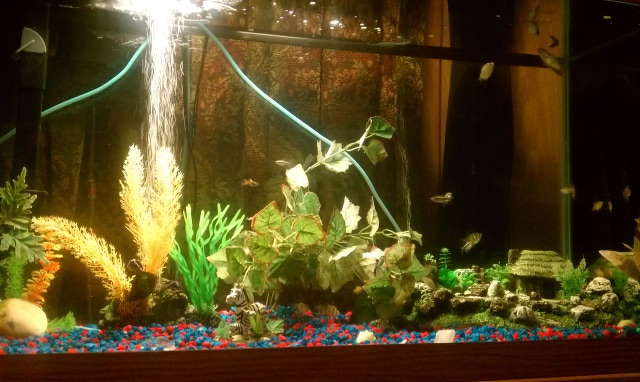 one to many fish in tank
Question
my tank
i have a 175gal freshwater tank
one to many fish in tank
Question
my tank
i have a 175gal freshwater tank
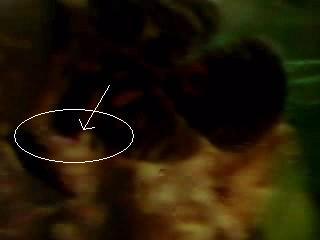 swollen butt/ possible worm
Question
fishs butt
I currently have a red tiger oscar.
swollen butt/ possible worm
Question
fishs butt
I currently have a red tiger oscar.
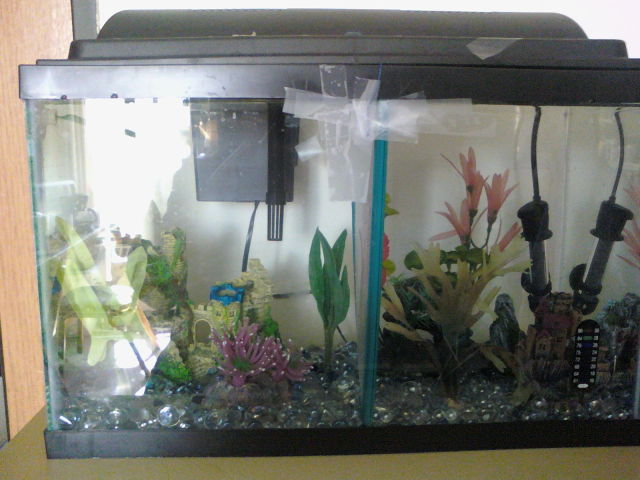 Is my filter too strong?
Question
The Home of Dorothy an
Dear Lynda,
I have a te
Is my filter too strong?
Question
The Home of Dorothy an
Dear Lynda,
I have a te
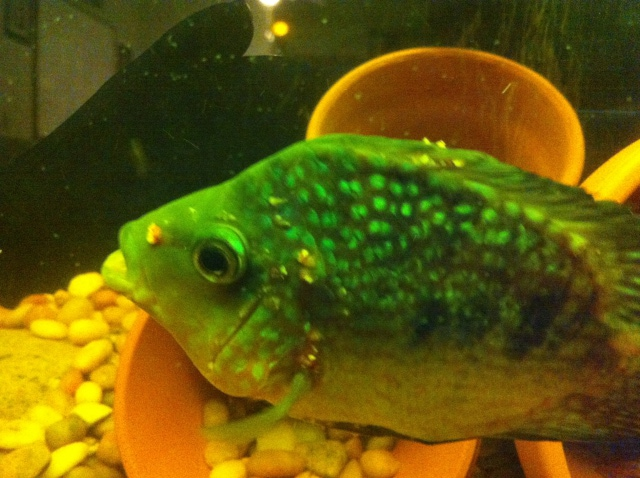 Red/white flesh type growths
Question
Texas parrot cichlid
Hi!
I have a Texa
Red/white flesh type growths
Question
Texas parrot cichlid
Hi!
I have a Texa
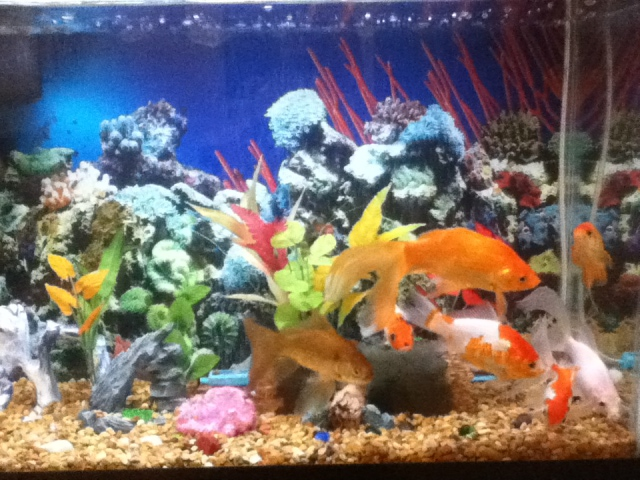 Beginner Help!
Question
My Fish clumped up
Hello Expert Jaymie
Beginner Help!
Question
My Fish clumped up
Hello Expert Jaymie